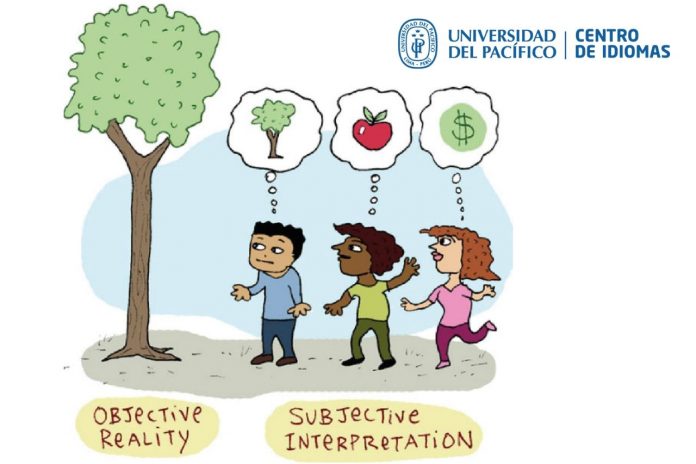During the years it is common that some adjectives face a process of enhancement, while others, on the contrary, follow an amelioration route. Thus, it is now common to think of an objective thought as something truthful, balanced, straightforward while the word subjective we deem as opinionated, imbalanced, capricious, even fickle.
In the educational field the inclination towards objective and subjective evaluations has been typical of different periods and educational styles. The thing is that subjective evaluation relies on opinions about intangible characteristics, while an objective performance evaluation depends on inarguable facts. In other words, objective evaluation is governed by grading endeavors to calculate quantifiable standards of quality. Nowadays we have learned that there are times when subjective evaluation should be used while some other instances call for objective ones. A factor in evaluation to be considered is the degree of subjectivity, which is usually a factor in assessments of student work especially when the effort is performance-based rather than content-based.
The problem lies in that there is no objective perception of an object. The object is what or who we observe or refer to. The object is what it is. Any intent of apprehending it by means of the senses or the mind involves a subject who effects the perception, making it then unavoidably subjective.
We tend to think that objective, because of the fact that only admits one possible answer, is closer to reality, “more truthful,” but this is not necessarily true because what we consider “objective” tends to be one-dimensional and, therefore, allows important considerations escape from our appreciation.
Number One is the best?
To illustrate that, parents and peers generally consider the best student the one that obtains the higher scores in exams and performance, without taking in consideration the effort that they made to attain that. We all know that effort is a very difficult element to measure in a quantitative fashion. But probably the teacher can observe, subjectively, that there is another pupil with greater achievements and merits.
So a subjective judgment involves more elements of judgment and should provide a wiser decision. But the problem comes when the subject, together with elements obtained from the object, incorporates components from his own psyche, namely feelings, inclinations, likes, dislikes, etc. That is what makes the validity of a subjective opinion quite relative.
So we should accept as a fact that “objective” assessment does not exist. But there are courses susceptible to be measured in a more objective manner, such as the scientifically oriented ones, while it is impossible to gauge objectively subjects of an artistic nature.
Language is generally considered within this last category and that includes foreign languages, naturally. Nevertheless, evaluation of comprehension and use of a language, English for example, is not restricted to the academic field but also practiced for other reasons like labor, immigration, international trade, tourism, aviation and many others. And the institutions providing international exams have opted for a combination of objective and subjective tests. The first are necessary because they are associated with a basis of fairness and also because they alleviate the job of correcting the papers. But the abilities related to speaking and writing must be evaluated subjectively since they are not based on unique and unequivocal answers.
Trying to objectivize the subjective
It is in these circumstances when rubrics become so important. They constitute a scoring guide that is employed to evaluate the quality of the students’ constructed responses. A rubric has three essential features: evaluative criteria, quality definitions, and a scoring strategy. Rubrics must help students acquire the skill represented by the test and each evaluative criterion must represent a key attribute of the skill being assessed. But the problem subsists: the teachers have to evaluate criteria anyway, which is in fact complex and subjective. International examining organizations try to guarantee that all of their certified examiners grade a response in the same manner. The thing is that notwithstanding all the training, in the end there will always be a degree of interpretation of the rubric and valuation of the student response. Will they eventually manage to square the circle?
Now, your turn:
Are you shattering your brain trying to round the square?
Is evaluating a nightmare for you?
Estimated reading time: 3 minutes, 31 seconds











